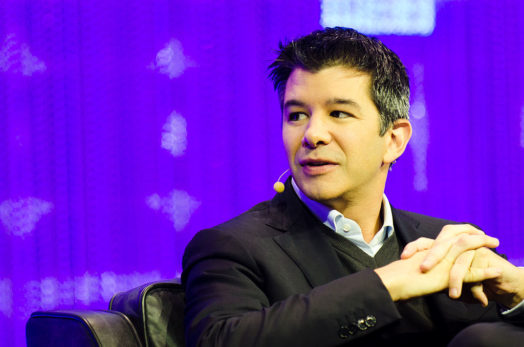It's been a bad few weeks for Uber. Revelations of sexual harassment in the company followed a very public blowback when Uber let its drivers break a taxi strike of JFK Airport protesting the Trump administration's travel ban. A few days ago, CEO Travis Kalanick was recorded having a shouting match with a driver over Uber's diminishing pay.
Joe Cortright at City Observatory says that beyond the public meltdowns, there are a growing number of signs that Uber's business model just isn't sustainable:
It’s losing money, and its competition is forcing it to lose even more money, in order to stay in business. In an effort to stay afloat, Uber’s passing its pain on to drivers, inventing a raft of lower-priced services (UberX, UberPool) and offering lower reimbursements to their drivers. Kalanick’s admission that competition is putting a cap on Uber’s prices–and profits–suggests that Uber’s $69 billion valuation may be excessive and that Uber’s critics may be right about the viability of its business model. The most strident critics maintain that the company will likely implode from its growing losses. Jalopnik’s Ryan Feltonhas been unstinting in his criticism of the company. Leaked financial reports from the company, analyzed by Hubert Horan at Naked Capitalism make a strong case that the company’s investors are subsidizing something like 59 percent of the cost of rides.
It remains to be seen whether the ride-sharing model is really economically viable, especially in face of competition. Our view at City Observatory has been that promoting competition among providers is a good thing, as a way of lowering prices and encouraging innovation: ‘Let a thousand Uber’s bloom‘ we said. And ultimately competition will help determine whether this business model actually makes any sense. To date, the companies have been propped up by the influx of money from venture capitalists, and, arguably, the willingness of driver/contractors to work for modest (and perhaps exploitative) wages.
Cortright continues:
There’s no question that ride-sharing and transportation network companies are “disruptive technologies.” But how disruptive they are depends directly on the prices they charge. The growth of Uber and Lyft is significantly due to the fact that their fares are lower than taxis and their service is better than taxis or transit. Earlier this week, a study of New York traffic trends attributed the rise in transportation network companies to the relatively low price of their service. The impact, and ultimately the success of these companies depends on what fares their customers are willing to pay.If Uber’s fares were say to double, its likely that its growth would decelerate significantly, and its mode share might actually decline.
More recommended reading today: The Political Environment reports that while Wisconsin lawmakers have been pouring billions into highways, some towns have been so deprived of transportation funds they're reverting paved roads to gravel. Bike Portland explains that the family of a local bicyclist who was killed on an unsafe bike lane received a half-million-dollar settlement from the city. And the Urbanist reports that Seattle's King County Metro is expanding bus service.






